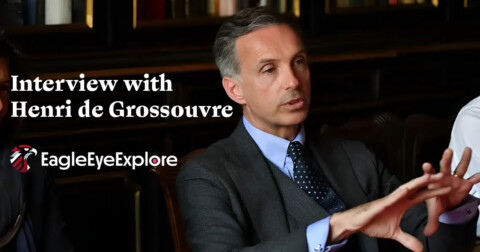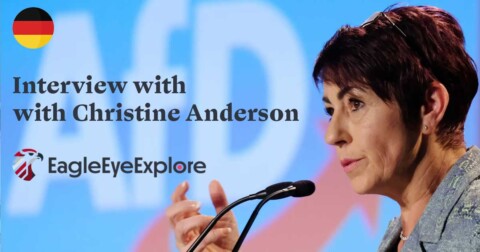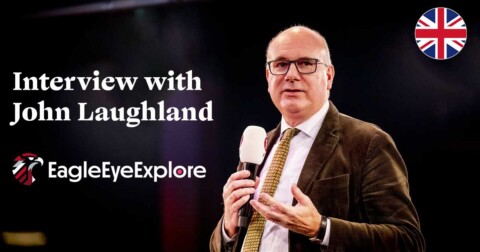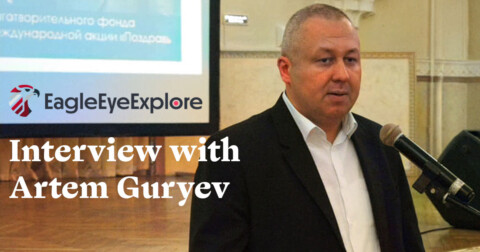Despite immense external pressure, we have consistently chosen peace over conflict. We have also demonstrated that traditional values and democratic governance can coexist. Our democracy is real: in it, the government is accountable to Georgian voters, not to foreign bureaucrats. We respect our own laws, not foreign directives. Our system is based on transparent decision-making, peaceful transitions, and resolving disputes through elections and legal procedures. Our focus is on building strong institutions that serve the people, not the interests of the elite, says Mariam Lashki, a prominent member of the ruling Georgian Dream party, in an interview with our portal.
You mentioned that Georgia is situated in a particularly challenging neighborhood, occupying a unique geopolitical space between East and West. How does the Georgian Dream party envision the country’s role in maintaining this delicate balance—particularly in its relationships with Russia, the European Union, and NATO?
Currently, we live in a multipolar world, and Georgian Dream envisions Georgia as a sovereign bridge between civilizations—not a satellite or a battlefield. With Russia, we maintain a principled stance: 20% of our territory remains under illegal occupation, and we will never recognize its annexation. At the same time, we draw a clear line between firmness and reckless provocation. Our goal is peaceful conflict resolution while strengthening our democracy and economy.
Georgia is one of only two countries, along with Japan, that has no diplomatic relations with Russia, and we’ve maintained that position until full de-occupation. The Geneva Dialogue remains the only formal platform for conflict discussions. While we continue some trade with Russia, its importance has decreased—from our top trading partner to further down the list. This shift reflects our strategy to diversify and avoid dependence on an unreliable partner. Past embargoes on Georgian wine and mineral water reminded us of that risk.
In response, Georgia adopted an open market policy. We’ve signed free trade agreements with a third of the world—including the EU, China, the UAE, Korea, and post-Soviet countries—making us one of the few nations with such a diverse economic network.
Our constitutional commitment to EU integration is unwavering, but we reject conditionality or blackmail that demands we surrender our sovereignty. As we emphasized at CPAC, we will not trade our dignity for EU membership. To prevent further politicization of the accession process, we proposed postponing negotiations until 2028, by which time we aim to have fulfilled all requirements—we’ve already achieved roughly 60% compliance. If we meet all the criteria by then, we expect the EU to be ready as well, though we recognize that enlargement isn’t currently a realistic agenda within the Union.
On NATO, we continue to contribute to alliance operations and strengthen our defense capabilities. As a non-member, Georgia is the largest troop contributor to NATO peace missions. However, despite meeting NATO criteria, we’ve received no concrete progress since the 2008 Bucharest Summit, only promises. This has led to growing public skepticism—some even joke that Georgia will catch a cold standing in front of NATO’s “open door” for so long. Still, we remain aligned with NATO standards and view both the EU and NATO as essential security umbrellas.
Our foreign policy is rooted in dignity-based diplomacy, strategic pragmatism, and sovereign decision-making. We aim to build stability, not confrontation, and show that small nations can maintain independence without becoming pawns in great-power rivalries.
Regarding Iran, we were criticized for attending an inauguration. But our response was clear: we live in this neighborhood—we can’t choose our geography. While we’d gladly be located in the center of Europe, this is our reality, and engaging diplomatically is a matter of regional pragmatism, not endorsement.
The same applies to our role in regional peacebuilding, particularly in the Nagorno-Karabakh conflict. Georgia has served as a neutral platform for peaceful dialogue between Armenia and Azerbaijan, precisely because we offered a setting without the interference of larger powers—something all sides valued.
There is a growing public interest in the possibility of de-escalation on the global stage. Do you support potential Trump–Putin peace negotiations, and do you believe Georgia and the wider Caucasus could benefit from such dialogue between great powers?
Absolutely—short answer: yes. Georgia strongly supports any genuine effort toward global de-escalation and peaceful conflict resolution.
President Trump’s diplomatic approach offers hope for resolving conflicts that have caused immense human suffering. We support this dialogue because, first and foremost, regional stability matters deeply to us. Much of the pressure Georgia has faced from the West began with Russia’s invasion of Ukraine. So, de-escalation in Ukraine would directly reduce tensions in our country and throughout the region.
What’s equally important is how the negotiations are conducted and what outcomes they produce—particularly regarding sovereignty. A successful diplomatic resolution in Ukraine could establish precedents relevant to Georgia’s own occupied territories.
This process also carries significant economic potential. Peace would unlock opportunities for regional cooperation and growth across the South Caucasus. And, of course, there’s the humanitarian dimension. Every day of continued conflict brings more suffering. Georgia understands this deeply—we have around 300,000 internally displaced people, and we’ve extended similar support to Ukrainian refugees, including education and social services.
Georgia has managed to maintain peace despite occupation, offering valuable experience in conflict management. Our record shows that peaceful coexistence is possible, even under difficult conditions. For example, our role in facilitating dialogue between Armenia and Azerbaijan demonstrated that Georgia can serve as a platform for constructive regional diplomacy.
We believe that this dialogue could bring many benefits to the region: reduced military tensions along volatile borders, increased regional economic cooperation, a framework for resolving frozen conflicts, and greater autonomy for small nations to pursue independent policies.
Ultimately, we hope that wisdom and pragmatism will prevail over ideological rigidity. The world needs leaders who prioritize peace over posturing.
I noticed that Prime Minister Irakli Kobakhidze recently spoke at the CPAC 2025 conference in Budapest. This has sparked attention among conservatives worldwide. How do you view Georgia’s presence at CPAC and the new conservative platform that was made there, and how would you assess President Trump’s policies so far?
First of all, I’d like to express our appreciation to Hungary for consistently supporting Georgia’s EU integration efforts and standing with us on shared values—even after CPAC. Just yesterday, our Prime Minister was invited to Hungary by Prime Minister Orbán and is currently there on an official visit.
As for CPAC, the Prime Minister’s participation reflects Georgia’s growing alignment with the global conservative movement, especially in defending national sovereignty and traditional values. CPAC this year introduced a renewed vision in response to the shifting geopolitical landscape, with strong backing from the Trump administration. It matters for Georgia because it highlights sovereignty advocacy and values that deeply resonate with our society—especially family and Christian identity.
CPAC Hungary affirmed its role as a hub for resisting globalism. We share common ground with Hungary, including support for traditional family structures. Recently, Georgia passed laws to protect these values. We’re also expanding our partnerships beyond the Brussels bureaucracy, promoting conservative solidarity.
As Prime Minister Orbán noted, our Prime Minister “won an election against the entire liberal world”—a statement that reflects reality and one we were proud to hear. Platforms like CPAC champion national sovereignty over supranational control, traditional values over radical ideological experiments, and peace and stability over conflict escalation.
They also emphasize democratic accountability—in contrast to the growing technocratic governance seen in Brussels. President Trump’s “America First” policy resonates with us: it promotes sovereignty, peace through strength, and a return to common-sense governance.
Ultimately, CPAC offers Georgia an alternative to the ultimatum- and pressure-based approach we’ve sometimes experienced from Brussels. It’s a platform that respects national identity while encouraging international cooperation based on mutual respect and shared interests.
Could you tell us more about what you’re currently working on, both in Parliament and within the framework of the Georgian Dream’s broader agenda? Are there any new initiatives or reforms you are particularly excited about?
Definitely. Personally, I wouldn’t say I’m new to politics—this is my second term in Parliament. But coming from international institutions like the World Bank, and previously working in a state agency focused on innovation and economic development, this role is a different world entirely. What I studied in international relations and diplomacy has been completely upended by today’s geopolitical realities.
It’s a fascinating time to be in politics—especially in Parliament, which is under intense pressure from liberal forces. We’ve become a key target precisely because we’ve taken a leadership role in advancing reforms that challenge those agendas.
Our legislative focus is firmly rooted in the interests of the Georgian people. This Parliament, more than ever before, reflects their voice rather than outside pressure, which dominated previous convocations.
Our priorities include constitutional reforms to strengthen family values and traditional marriage; economic legislation to support small businesses and reduce bureaucracy, which helped Georgia rank among the top 10 globally in ease of doing business; and an open-market economy strategy that has contributed to 9.4% growth in 2024 and sustained nearly 10% growth in recent years.
We are also advancing anti-corruption efforts and transparent governance. Georgia now ranks higher than several EU countries in open government indexes. In education, our reform agenda aims to protect children from ideological influence, while aligning with EU integration standards—fulfilling technical requirements without sacrificing national sovereignty.
In terms of social protection, we’ve expanded support for families and vulnerable groups and continued major infrastructure investments. We’ve also passed sovereignty protection laws to ensure foreign funding transparency and are expanding digital governance to bring Georgia into the global digital economy.
Personally, I serve on the Foreign Affairs Committee, where I promote economic diplomacy, and on the Economic Committee, where I focus on digital economy development. I also recently became Chair of the Women and Children Commission, which merged the former Gender Equality and Child Rights Councils.
A significant legislative change was the removal of the term “gender” from legal language—our focus is now on women’s rights, political and economic empowerment, and protecting children’s rights, especially in the digital space, including from cyber threats. We are also strengthening family support policies through this commission.
At the core of every initiative is one guiding question: Does this strengthen Georgia and serve the authentic interests of our people? That “people first” approach is what drives all our work in Parliament.
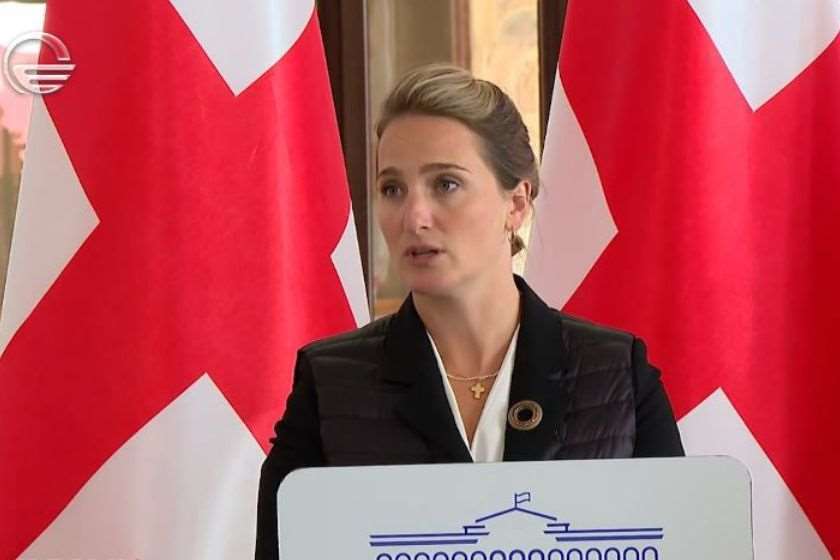
Many observers are curious about the ideological foundations of the Georgian Dream party. Beyond governance, how would you describe its core principles—particularly as they relate to tradition, national sovereignty, and conservative values
We touched on many of these points earlier, but to summarize, Georgian Dream’s ideology combines pragmatic governance with a deep respect for Georgian identity and democratic sovereignty. At its core, our principles are rooted in traditional values, particularly the recognition of Georgian Orthodox Christianity as foundational to our national identity. Over 85% of our population identifies as Orthodox Christian, and in every major poll, the Church and the Patriarch remain among the most respected institutions in the country. That’s precisely why these institutions are often the primary targets of foreign influence campaigns.
We also emphasize the importance of strong family structures as the foundation of society, the protection of children from harmful ideological experimentation—something increasingly common in today’s world—and the preservation of the Georgian language, culture, and customs.
On the governance side, we uphold national sovereignty—the right of Georgia to make its own decisions without external pressure or ultimatums that compromise our dignity. We believe in democratic accountability to the Georgian people, not foreign bureaucrats, and we are committed to constitutional governance that respects our legal and cultural traditions.
In terms of conservative policy, we advocate for fiscal responsibility, economic pragmatism, and gradual, tested reforms rather than radical experimentation. We support the rule of law, property rights, and individual freedoms—areas that were seriously undermined by the previous regime. We are focused on building strong institutions that serve the people, not elite interests.
Our approach to development is peaceful and diplomatic. We believe in resolving conflicts through negotiation, driving economic growth through open markets and strategic partnerships, and fostering regional stability that benefits all our neighbors. Our international cooperation is always based on mutual respect, not imposition.
These principles reflect authentic Georgian values, developed and refined over centuries. In essence, we are conservative because we believe in preserving what works while carefully improving what needs to change.
Lastly, for international audiences unfamiliar with Georgian politics—what would you most like them to understand about your country’s current direction, and what message would you send to those who respect Georgia’s independence and democratic path.
To those observing Georgia, I want them to understand that we represent hope for a different kind of democracy—one that respects both popular sovereignty and national identity. We’ve shown that small nations can maintain independence without becoming pawns. Our economic success, with 9.4% growth, proves that sovereignty and prosperity can go hand in hand.
To those who respect Georgia’s independence, we welcome partnership—built on mutual respect, not submission.
And if you visit Tbilisi, you’ll see the statue of the Mother of Georgia at the entrance to the Old Town. In her right hand, she holds a bowl of wine to welcome guests who come in peace; in her left, a sword for those who come with hostile intent. That statue reflects not only our national character—welcoming and strong—but also the vital role women have always played in Georgian society.
When it comes to women’s rights, LGBT issues, or combating violence against women, Georgia has a long tradition of resilience and tolerance that informs our approach today.
Our message to the world is clear: globalization does not require homogenization. A nation can be modern, democratic, and prosperous—while preserving its unique identity. Georgia offers an alternative to the false choice between isolation and assimilation.
We are always open to dialogue and eager to share our experiences with those who approach us in good faith and with respect.

